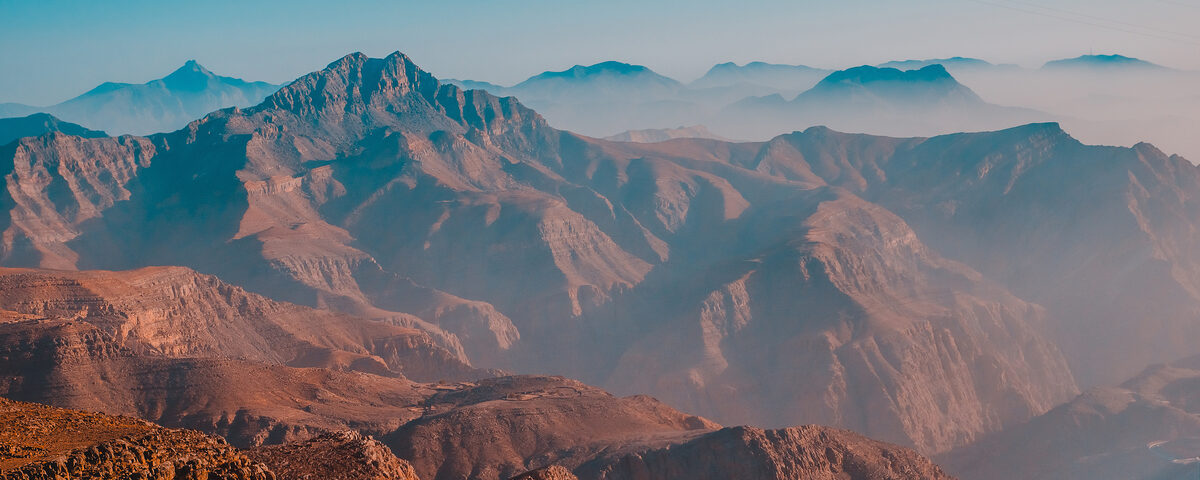Ras Al Khaimah, the Northern-most Emirate of the UAE, is on course to lead the Middle East region in sustainable tourism by 2025 and has recently unveiled substantial additions to its attractions and hospitality portfolio, setting the stage for an eco-conscious expansion.
At the forefront of this mission is Ras Al Khaimah’s Balanced Tourism policy – a comprehensive strategy placing the environment, culture, conservation, and quality of life at the heart of the Emirate’s central tourism investment and development plan, created in partnership with EarthCheck, the world’s leading scientific benchmarking, certification, and advisory group for travel and tourism.
Since the launch of this strategy, known as “Responsible RAK”, Ras Al Khaimah Tourism Development Authority (RAKTDA) has successfully implemented robust sustainability measurement and certification programmes for the destination and tourism businesses which set out guidelines and measure the efficacy of sustainability protocols against 10 performance metrics, including energy usage, greenhouse gas emissions, and water consumption. Significant progress has already been made with RAKTDA receiving the EarthCheck Silver Certification, becoming the first destination to receive this recognition in the Middle East. Ras Al Khaimah’s Silver certification also resonates deeply within the broader context of the UAE’s ‘Year of Sustainability’ initiative and COP28, to be staged in the UAE this November.
Over 20 hotels and attractions are also part of the programme and expected to achieve Silver Certification by the end of 2023 in line with the Authority’s efforts to promote responsible tourism as it continues to welcome a growing number of international visitors.
With a steadfast commitment to sustainable, balanced, and targeted development, Ras Al Khaimah Tourism Development Authority (RAKTDA) has applied a mindful approach to new hotel developments. Consulting with hospitality partners to ensure thoughtful development and a measured pipeline that avoids rapid, less well-planned expansion and overcrowding. As the licensing authority for new hotels, RAKTDA sets sustainability guidelines and protocols under a ‘Green Hotel Rating’ initiative, striving for 100% integrated sustainability across new developments.
Notable upcoming developments include the addition of renowned hotel brands such as Earth Hotels, Sofitel, Le Meridien, Nobu Hotels and W by Marriott which will boost the growing hospitality offering and fuel ambitious growth plans of doubling the Emirate’s guest room capacity in the coming years, marking one of the highest growth rates in the region. This involves Wynn Al Marjan Island, a multi-billion-dollar integrated hospitality project. The new 250,000 sqm innovative resort will feature more than 1,500 rooms, shopping, meeting and convention facilities, a spa, over 20 restaurants and lounges, extensive entertainment choices, and gaming area (opening 2027). Additionally, Anantara Mina Al Arab Ras Al Khaimah Resort, scheduled to open later this year, will boast 174 rooms, including overwater villas with private plunge pools and exclusive access to private beach cabanas.
RAKTDA’s long-term plan will additionally invest in cultural conservation to protect and enhance the Emirate’s four archaeological sites which are on the UNESCO World Heritage Tentative List. Other key cultural projects include Suwaidi Pearls, the only pearl farm in the UAE which still cultivates local pearls and Al Jazeera Al Hamra, one of the last surviving pearl diving and seafaring towns of the Arabian Gulf.
Raki Phillips, CEO of Ras Al Khaimah Tourism Development Authority said, “We’re thrilled with the success of our balanced tourism approach so far, along with the measured growth of our hotel and attractions portfolio – and this is just the beginning. Doubling our guest room capacity is a testament to Ras Al Khaimah’s allure as a global destination. However, as we expand, we remain dedicated in our commitment to sustainable tourism. We won’t rest on our laurels; we’ll continue innovating and setting new benchmarks in responsible travel, ensuring that the beauty of our Emirate endures for generations to come.”
In parallel, the Emirate is embracing accessible tourism and moving towards more inclusive and sustainable travel. People with disability and special needs spend approximately £6.6 billion on tourism services annually, and the World Health Organisation estimates the number of people with disabilities will double to two billion by 2050. The Authority has engaged with accessibility experts, Sage Inclusion, to map out the consumer journey from the eyes of the traveller in a move to ensure that Ras Al Khaimah is on par with the best destinations for accessibility standards to cater to this important travel audience.
In addition to its commitment to enhancing the leisure visitor experience, Ras Al Khaimah is strategically focused on bolstering its presence in the MICE market by providing corporate travellers with an authentic Arabian experience. Its diverse natural landscapes, encompassing the sea, desert, and vast mountains, in conjunction with an expanding portfolio of renowned global hospitality brands, positions Ras Al Khaimah as the premier choice for MICE events.
This focus is underscored by the Emirate’s impressive track record in hosting prestigious international and regional events, including the Arab Aviation Summit, the Global Citizen Forum and various sporting events such as the UAE Tour, the Ras Al Khaimah Half Marathon and the WMF Minifootball World Cup. With this steadfast commitment and a remarkable 26% increase in MICE room nights compared to the same period in 2022, Ras Al Khaimah is on track to significantly increase its prominence in the market. The destination is also strengthening its positioning as a leading wedding destination, with H1 2023 witnessing a 300% increase in weddings revenue YoY compared to 2022.
Ras Al Khaimah announced record-breaking arrivals earlier this year between January and June 2023 recording a total increase of 14.8% versus H1 2022 and the highest ever tourism-related revenue achieved for a half-year period, taking the Emirate a step closer to its goal of securing over three million annual visitors by 2030, whilst keeping balanced tourism at its core.


